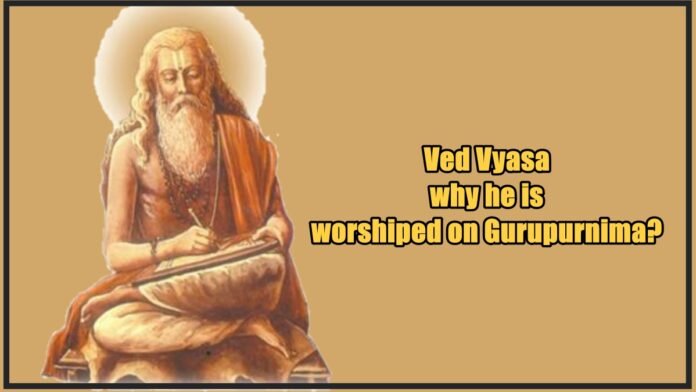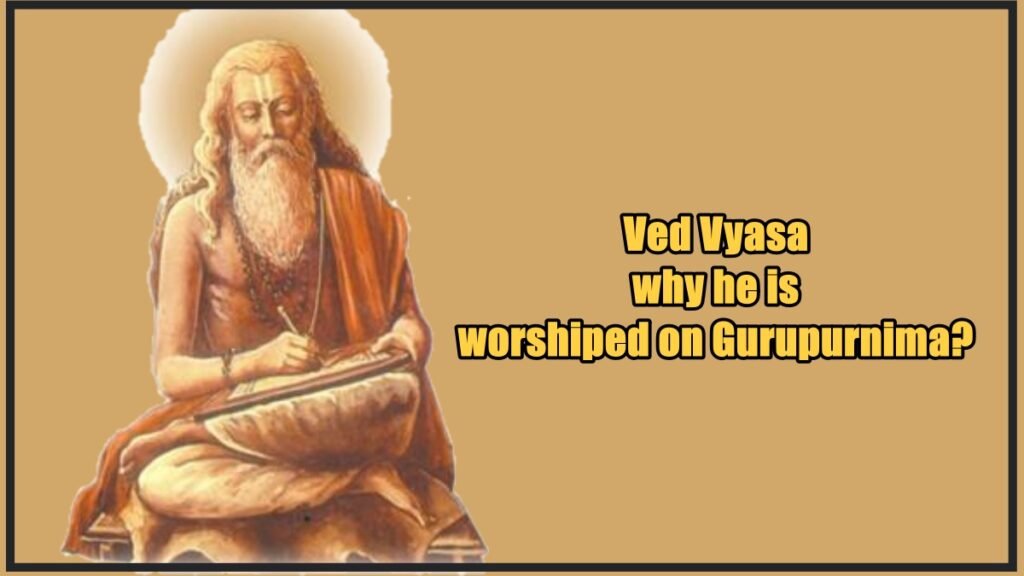
Veda Vyasa, also known as Krishna Dvaipayana Vyasa, is a revered figure in Hindu mythology and is considered the author and compiler of the ancient Indian epic, the Mahabharata. He is also believed to be the author of the eighteen Puranas and the Brahma Sutras. Veda Vyasa is highly respected as a sage, teacher, and prominent figure in Indian history and culture. On the auspicious occasion of Guru Purnima, Veda Vyasa is worshipped and revered for his contributions to spiritual knowledge and wisdom.
Veda Vyasa’s Birth and Lineage:
According to Hindu mythology, Veda Vyasa was born to the sage Parashara and Satyavati, the daughter of a fisherman. He was born on an island in the river Yamuna, which is why he is also known as Krishna Dvaipayana (Krishna, born on an island). His birth took place during the Dvapara Yuga, the third of the four Yugas or ages in Hindu cosmology. Veda Vyasa’s lineage can be traced back to the great sage Vasishtha.
Compilation of the Vedas:
One of Veda Vyasa’s most significant contributions was the compilation and categorization of the four Vedas: Rigveda, Samaveda, Yajurveda, and Atharvaveda. The Vedas are ancient scriptures considered to be the oldest sacred texts in Hinduism, composed by different seers over thousands of years. Veda Vyasa arranged the hymns, chants, rituals, and philosophical teachings contained in the Vedas into separate branches called Shakhas and entrusted them to his disciples.
Writing the Mahabharata:
Veda Vyasa is best known for being the author and compiler of the Mahabharata, an epic narrative that chronicles the events surrounding the Kurukshetra War between two factions of a royal family, the Pandavas, and the Kauravas. The Mahabharata is not just a story of war but also a profound exposition of moral and philosophical dilemmas, divine teachings, and human relationships. Veda Vyasa is considered both the narrator and a character within the epic.
The Mahabharata is an extensive work, containing over 100,000 verses, divided into 18 sections known as Parvas. The most famous section is the Bhagavad Gita, which is a conversation between Lord Krishna and the warrior Arjuna, imparting profound spiritual and philosophical teachings. Veda Vyasa’s role as the author of the Mahabharata is significant, as he presented the epic in a way that it serves as a treasure trove of wisdom and guidance for humanity.
Compilation of the Puranas:
In addition to the Mahabharata, Veda Vyasa is also credited with composing and compiling the eighteen Mahapuranas, which are ancient Hindu texts that provide valuable insights into mythology, cosmology, history, and genealogy. Each Purana focuses on different deities, stories, and teachings, covering a vast range of topics. Veda Vyasa’s work in compiling the Puranas helped preserve and transmit valuable knowledge and cultural traditions across generations.
The Brahma Sutras:
Another significant contribution attributed to Veda Vyasa is the authorship of the Brahma Sutras, also known as the Vedanta Sutras. These concise and cryptic aphorisms form the foundation of Vedanta philosophy, which interprets and synthesizes the teachings of the Upanishads, the final section of the Vedas. The Brahma Sutras delve into the nature of reality, the relationship between the individual soul (Atman) and the universal consciousness (Brahman), and the path to liberation (Moksha).

Worship on Guru Purnima:
Guru Purnima is an auspicious day in the Hindu calendar dedicated to expressing gratitude and reverence to teachers and spiritual guides. It falls on the full moon day (Purnima) in the Hindu month of Ashadha (June-July). On this day, disciples and devotees pay homage to Veda Vyasa, who is considered the Adi Guru (the first Guru) and the embodiment of divine wisdom.
Veda Vyasa’s immense contributions to spiritual and intellectual knowledge have made him an iconic figure in the Hindu tradition. By compiling the Vedas, writing the Mahabharata, composing the Puranas, and expounding the Brahma Sutras, Veda Vyasa has left a profound legacy that continues to inspire and guide people on their spiritual journeys.
On Guru Purnima, devotees offer prayers, perform rituals, and express their gratitude to Veda Vyasa for his invaluable contributions. They seek his blessings for spiritual growth, knowledge, and wisdom. Through his works, Veda Vyasa continues to be revered as the epitome of a true guru, guiding humanity toward self-realization and higher consciousness.








































